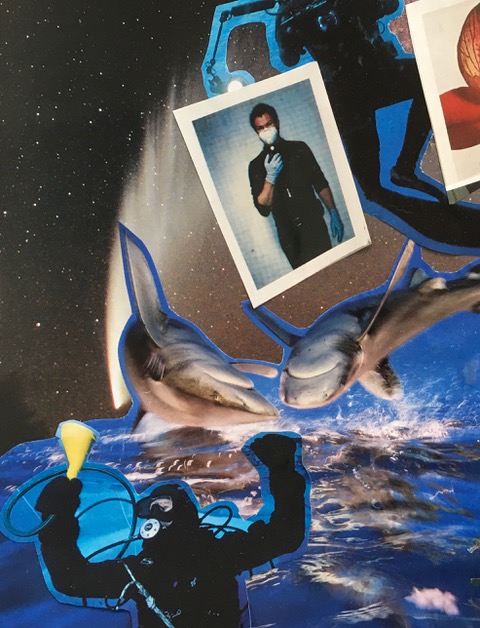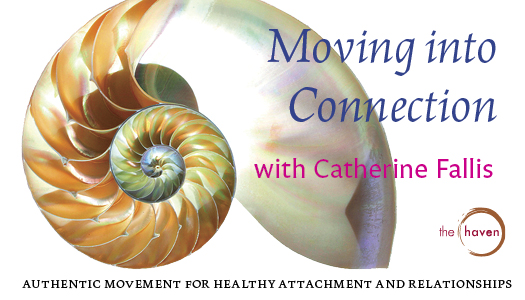Come Alive and the Commitment of Loving
Dale Kelly wrote this open letter to the facilitators and his small group leaders of a Come Alive he took last year. Dale is a director on the Haven Foundation Board.
———-
Dear, Linda, Penny, David, Bill (and cc. Rachel),
This letter is an appreciation for your ‘work’ in the Come Alive in September 2012. What follows are some of my thoughts about my journey since then and some of my reflections on my experiences during the program. In this reflection I call you four the Faculty.
I went to the Come Alive for both personal and director reasons. Rachel encouraged me to go as a Director to get a sense of why participants came to The Haven and what they were experiencing.
I did talk with every participant individually in a personal conversation during the program.
I have done three Come Alive programs: first at Cold Mountain (more than 35 years ago), then at The Haven (about 26 years ago), and the third with you in September of 2012. Each program was a new learning experience.
In reflecting on my most recent experience I asked myself, “What did I notice about myself, the participants, and the Faculty?” I also brought forward my history of experiences in personal growth, my 35 years in education, and in the context of my on-going life.
In the Come Alive last September I was reminded of Haven communication skills and models and repeatedly throughout the program I felt supported, cared for, accepted “as is” while encouraged to extend myself. I witnessed the Faculty doing/saying things that offered these experiences to everyone else as well. Witnessing these interactions between Faculty and other participants added emphasis to the emotions that I was experiencing and deepened them.
In my reflection I found that it was useful for me to look at the Come Alive as a curriculum. During my first year with the Professional Development Division of the BC Teachers’ Federation in 1979 I was invited to attend a workshop with Elliot Eisner. He was internationally known for his work in art education, curriculum studies and education evaluation. I found a treasure of support for my educational values in his book, The Educational Imagination, where he suggests that curriculum development could be looked at as Art. He developed the concepts of three curricula that all schools teach: the explicit, the implicit, and the null (what is not taught). In the Come Alive the explicit curriculum would include the various Haven models. It is in the implicit curriculum where I found the subtlest yet the most powerful expressions of the program.
The implicit curriculum begins in how the Come Alive is presented off property and outside the session rooms such as the physical environment as well as the environment inside the session rooms. They all contribute to the feeling that this is a special place where learning is done in a special way. However, it is the implicit curriculum as found ‘embodied’ in the Faculty that most profoundly influenced me. I will call the generalized feeling that I experienced and that I also witnessed in the participants as an immersion in loving. Ben Wong and Jock McKeen developed this list of aspects of loving that I believe are offered implicitly by the Faculty to the participants in innumerable ways throughout the Come Alive (this is not a maudlin loving):
Loving is Supportive
Loving is Enstrengthening
Loving is Enlightening
Loving is Valuing the Person
Loving is Pleasuring
Loving is Recognition
Loving is Being Vulnerable and Intimate (Self disclosure)
Loving is Accepting
Loving is Sharing
Loving is Co-creating
Loving is Eternal (I would say ‘Timeless.’)
Jock and Ben add, “…these aspects of loving are additive and cumulative. Although they tend to proceed from top to bottom, these aspects of loving are more like elements in a rich tapestry of experience…”
How did the Faculty offer these aspects of Loving? To paraphrase Eisner, it is in their language accompanied by gesture, expression, tempo, cadence, silence, emphasis and energy. I wondered, “How did the Faculty learn to interact with the participants in these loving ways?” What I came to was that they were trained experientially in an environment a lot like the Come Alive so that their behaviour became an expression of self-knowledge. This self-knowledge is different from technical knowledge. This self-knowledge is an experience where the concern is not about himself or herself but about the other person.
For the Faculty these aspects of loving are not just a question of cognitive competence, they are a question of character. The Faculty teaches this implicit curriculum by being who they have become while being uniquely and unequivocally themselves.
During the time that I have been reflecting on my experiences from the Come Alive I was asked by my daughter to say some words as a toast to the couple at their wedding. Both my daughter and her husband have done programs at Haven so I asked myself, “What have they got out of their Haven experiences?” The most striking to me is that they both are living the aspects of loving that I see in Ben and Jock’s list. Talking about their loving became my speech woven around each of these aspects.
In my research into what to say about loving at the wedding, I reread books by John Powell. I wove the following quotation into the wedding speech.
“Stages or Moments of Love:
Love is a decision and a commitment.
1. Kindness: a warm assurance that “I am on your side. I care about you.”
2. Encouragement: a strong reassurance of your own strength and self-sufficiency.
3. Challenge: a loving but firm exhortation to action.”
(John Powell, Unconditional Love. p.83.)
For me, this quotation express the template of the implicit curriculum of the Come Alive as embodied in the Faculty.
With a full heart, I thank each of you, Linda, David, Bill and Penny for your “Being” in the Come Alive and Rachel for #3 above.





